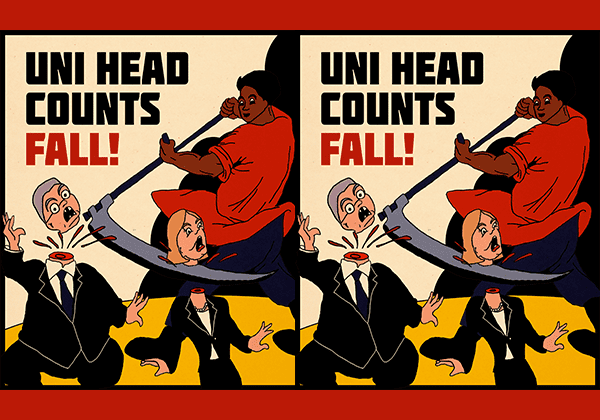When people speak of Honi’s radical history, many hark back to a time when editors would be labelled “filthy and scurrilous” for their anti-war propaganda, or when angry Young Liberals would toss thousands of print copies into Victoria Park pond. Some remember a less distant Honi, when Max Hall and Sam Langford would ask: “Where are all the ibis babies?” I don’t think I ever felt a real appreciation of Honi’s legacy, until suddenly realising we had only four editions left to cement our own.
While I could chronicle the past year in superlatives, it is not the editors but the times that shape this paper. I cannot ignore the fact that as neoliberal thinking bleeds into our education, Honi too has begun to embrace the sensibilities of mainstream journalism. Taking on a watchdog mantle, it increasingly seeks authority through serious and “objective” reporting. The institution rewards individual achievement and extreme productivity, with success often being reduced to publishing output and Facebook metrics.
But I cling to the ideal that student journalism is, by its very nature, a form of resistance. Our words can achieve so much more than inform; they can mobilise and emancipate. When readers look through the Honi archives in five years time, they will not revel in our names, but in our stories and struggles.
This week’s feature (pp 8-10), which follows the corporatisation of higher education across the decade, charts what students and staff have felt so viscerally through years of course cuts and austerity. Mahmoud Al Rifai’s piece on anti-lockdown protesters and the far right (P 15) asks us to find generosity amidst upheaval within our own communities. A highlight of this edition is Alice Trenoweth-Creswell’s piece on Annandale’s witch houses (P 17), capturing our collective desire to escape the familiarity of lockdown.
It is an understated fact that we as students are able to set our own terms for journalism. When we subscribe to the status quo, we cede much of our power. I imagine a paper where the dictatorship of genre does not exist, where co-creation is celebrated, and where politics, art, and humour collide in beautiful fashion. Marlow Hurst’s piece on the cows of Camden (P 18) dares to bask in Honi’s mainstream irrelevance. This week’s pieces interrogating classism and whiteness within student activism (Pp 13 and 14) defy the “breaking story” in favour of deep listening and compassion.
I can’t help but grieve the moments stolen from us — the half-full beer glasses never thieved, the buses to the lost property depot never boarded. But I’m writing this editorial in my bedroom three hours before lockdown ends, getting ready to go to the pub. A delivery of fresh new clothes just arrived (maybe I can stop “dressing like a law student,” as Claire says). And as I end the Honi Zoom call, I feel my own moment of catharsis. I can’t wait to be a student once again.





